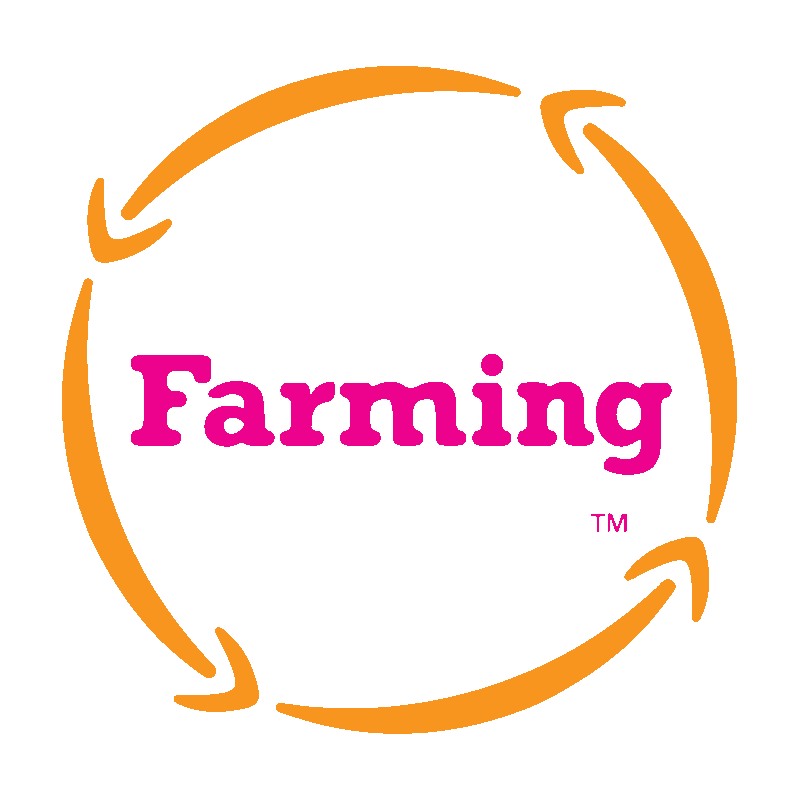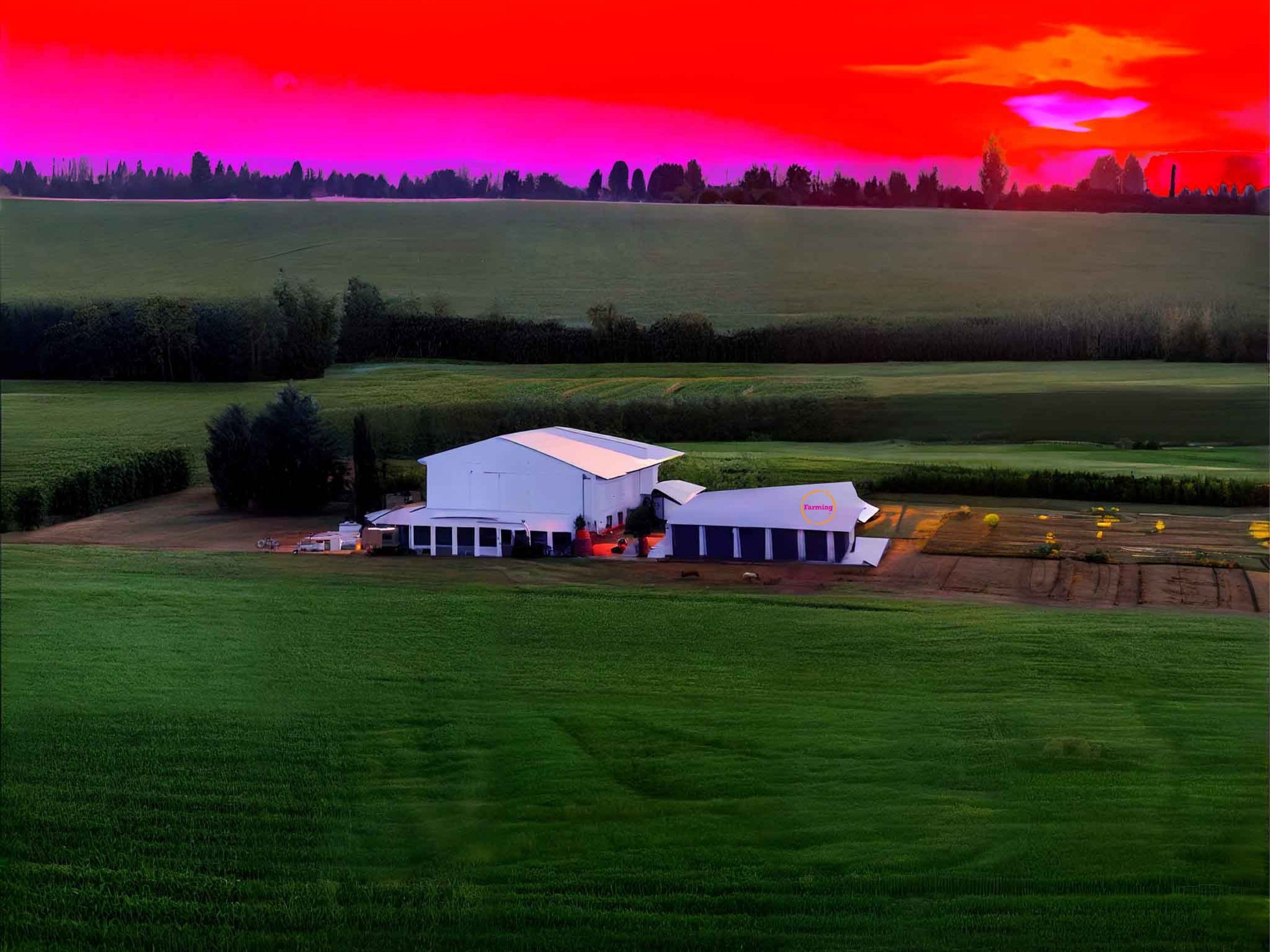Evolution
I went back and looked at the first note I sent to Ted Hearne about this project, Farming.
(Email may have ruined our lives, but it’s a pretty good resource when memory fails.)
That note was written in Fall 2019, following up on a phone call in which I explained a crazy idea for which I wanted him to compose a big piece. The big piece is Farming.
That means we’ve been at this nearly four years, though the original plan was to bring it to life last Summer. Several months into the pandemic, it was clear that our work at The Crossing was going to take a very different direction for quite a while, so we postponed the project till this June, hoping that we’d be able to develop the piece in person, long clear of restraints.
I am so glad we postponed.
The piece has evolved so much.
It’s had time to tell us about itself and to, pardon the metaphor, grow organically.
A November 2019 note summarized what we knew at the time:
We want to make a piece about Food, Farming, Money, and the Environment and we are deep into the works of Sarah Taber, Wendell Berry, research of Miguel Altieri and GMO reporting of Nadia Prupis. The piece will be about communities and relationships to food and food sources, sung and played by the combined communities of The Crossing and [a fabulous new-music ensemble in LA] and have an overwhelming impact on the viewer through the music of Ted Hearne (LA), the incorporation of video by [a fascinatingly creative video artist living in Berlin] and stage direction of [an innovative director recently working on some choral pieces in NYC].
The brackets above indicate just how much the piece has changed.
The libretto has matured and expanded well beyond the original; it’s now more about the land – ownership, transfer, labor.
We’ve since put together our own very eclectic group of musicians, with Ted writing specifically for their individual gifts. Guitarists Viva DeConcini and Taylor Levine, Percussionists Ron Wiltrout and Clara Warnaar, and keyboardists Rohan Chander and our very own John Grecia.
The video artist we’re working with now, Peter English, has a completely different perspective on the medium (and, coincidentally, lives in Philadelphia!).
The stage director is Ashley Tata (New York), whose vision has become integral to the concept.
We’ve added a designer, Nia Easley (Chicago), who has informed the storytelling in a number of ways.
Not mentioned in the original concept are the lighting designers Pablo Santiago (Los Angeles) and Carolina Ortiz (New York).
And the greatest omission in that summary is the indispensable sound designer Paul Vazquez (North Jersey!).
Recently, we added Rebecca Kanach (Philadelphia) as costumer; she worked on Aniara with us back in 2019.
This list could go on and on; the original brief could easily have mentioned more locals:
Alex Cohen and Clara Weishahn, our hosts at Kings Oaks Farm in Bucks County where (the now-titled) Farming will be born.
our producing team, with staff Jonathan Bradley, Kevin Vondrak, and Shannon McMahon leading the way.
the (also indispensable) stage manager Kate Nelson and line producer Neil Kutner.
In these blogs, I’ll be talking a bit more about some of the creative minds in this stellar community…and I haven’t yet mentioned the stars of the show – the singers of The Crossing.
Back to the story.
What happened next: we made a grant proposal to the Pew Center for Arts & Heritage. In our (incredibly helpful, guiding) discussions with their team, we refined the project goals. We focused at times on my personal interest – the work’s origin story: I grew up surrounded by small farms in northern Bucks County, and that connection to land, soil, plants is a motivating factor in the stories I want to tell, the stories The Crossing commissions, builds, premieres, records, tours. And we focused on the nature of a work that is intended, at least in its original production, to be heard – and seen – outdoors, in a cultivated field, removing one layer of our distance from the story, from our food.
That grant proposal was successful. The Pew Center gave us the courage (and the seed funding) to move forward, knowing that this is the biggest project we’ve ever done (and that’s saying something, since Aniara – our 2019 Pew-supported project – was a fully-staged and costumed choral theatre work in collaboration with an experimental theatre company from Helsinki, with tours to the Haarlem Koorbiennale in the Netherlands and the Finnish National Opera!)
Every big, octopus-like, multi-year, multi-discipline project evolves. It morphs because we get to know the story better and we listen to what it wants to say. It evolves because we apply style to an idea. When we write out what’s in our imagination, it changes – it presents problems to solve, because it’s not actually all that easy to translate an idea into a thing. With Farming, this evolution has been complex, exhilarating, and significant. The piece just isn’t what we thought.
It’s better.
Much better.
It has more layers than I imagined. It gets underneath the story that was the seed. That seed was aiming to talk about how our food gets to us; let’s make a piece about food and farming and how our food actually gets from farm to table (and maybe compare that to the narrative we’re given at our Farmer’s Markets?) And, let’s place it on farmed land which has a history – farmed for thousands of years, and more recently, among the centers of colonial farming. A new piece that asks who owns what, placed right in the midst of the “what”; where are close to the soil; hear the insects that bring things to life; consider germination, pollination, cultivation; touch a plant that produces a fruit we would ordinarily find wrapped in plastic in the refrigerated section of a supermarket, absent of its greenery.
I want to be careful with these Farming blogs to limit the amount of information about the piece prior to its unveiling in a loosely-woven, episodic performance. It’s intended to be heard as a whole, either in person at the world premiere in Bucks County in late June, or just after that when we take it to Haarlem, The Netherlands, or in mid-July at the Caramoor Festival in New York, or a bit later, or the commercial studio recording we’re making during the initial production period. So, I’ll be writing about process and progress. Where we are.
This is where we are now, in Ted’s words:
Farming grapples with the impact of settler colonialism on current labor practices from tech to agriculture. It’s a speculative corporate retreat of sorts, a hyperpop fantasia with praise choir. The texts are drawn from William Penn's letters to and about the Lenape people around his colonization of the land now called Pennsylvania, alongside Jeff Bezos's speeches around the expansion of Amazon, cut with advertisements from UberEats, Farmer's Fridge, and H-2A Visa Processing Outfits.
So, Sarah Taber and Miguel Altieri inspired us, but William Penn has wound up as a text source. That decision, Ted’s, has made this story strangely more immediate and personal. (In a later blog we’ll look at Ted’s interest in singing words of others that we wouldn’t say – it’s been a part of most of the choral works he’s written, for us – including What it Might Say, Sound from the Bench, and Animals – and for others.).
Storytelling is, indeed, immediate and personal.
We recognize ourselves in the stories of others. I
Storytelling reminds us of our humanity, and that, like works of art, we can evolve as people.
Farming and Farming remind us of our humanity.

